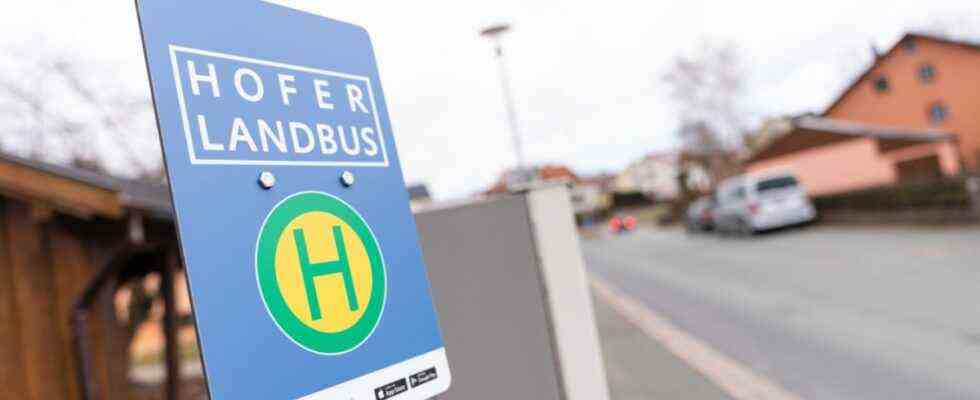A village somewhere in Franconia. The bus picks up the school children in the morning and brings them back in the afternoon. If you have to go to the doctor spontaneously, have an appointment with the authorities at 11.30 a.m. sharp, have a job outside of your destination city or want to go to the cinema in the evening, you need a car. But fuel prices are rising, and the classic car is increasingly falling into disrepute in the course of climate protection debates. Waiting on one of the colorful car-sharing benches that are set up in many villages until a car driver has mercy cannot be a serious alternative. Public transport, using bicycles or sharing offers are good ideas in conurbations or in the city. But in the country?
The situation of local public transport can be summarized as follows: The more rural the region, the thinner the timetables. “In the country, I currently have the choice between driving a car and sitting still. New types of public transport – such as sharing, blurred boundaries between public and private transport or digital solutions will improve the situation in the country, but they will never take on a new quality change,” says mobility expert Lutz Fügener from the Hof University of Applied Sciences. The coalition agreement of the traffic light coalition in the federal government states: “We want to enable the federal states and municipalities to improve the attractiveness and capacities of public transport.” Concrete measures are not mentioned.
But there are new ideas. For example in the district of Hof: The Hofer Landbus does not have a fixed timetable. If you want to get from A to B, you can book a trip in an app or on the phone. The routes are calculated flexibly. The bus is available daily from 6 a.m. to 11 p.m. – including weekends. Each trip costs three euros, the average waiting time for the bus is ten minutes. The project is already running in the Rehau and Regnitzlosau area and is now to be extended to other municipalities: “The Hofer Landbus is an absolute success project that we will expand,” says District Administrator Oliver Bär (CSU). The feedback is extremely positive. “The aim is for the Hofer Landbus to experience the entire region.”
Rehaus Mayor Michael Abraham says: “The cheap fare, the large number of stops, the needs-based requirement and the extensive usage times meet the spirit of the times.” The Hofer Landbus is “the breakthrough in local public transport”. Together with the existing regular service and the railway, the project offers “mobility offers that are otherwise only known from large cities”. The Free State of Bavaria is supporting the project with 600,000 euros spread over five years. The district of Hof contributes around 120,000 euros annually.
The concept in Bad Hindelang in the Allgäu is similar. A new, electrically operated on-demand bus called “EMMI” can be booked using the mobile app. Again, there is no timetable and no fixed route. “In this way, even remote hamlets can be connected to public transport,” say those responsible. Empty trips would be avoided, since the routes would be recalculated again and again – as required – and trips would be bundled. Mayor Sabine Rödel describes the new offer as “more flexible, user-friendly and sustainable”. The project will initially run for two years and will cost the community 300,000 euros a year.
Public transport must become so attractive that at least one car in a family living in the country can be deregistered, summarizes Jörg Lange from the Pro Bahn passenger association. “Critics then like to paint pictures of empty ghost buses on the wall. An offer to the citizens that should be used must also be suitable for the citizens – it’s like buying shoes.” In rural areas, almost every adult now has a car – because shopping facilities and schools are no longer available in every town. To be fair, however, it must be said that many people have now become more sensitive to climate and environmental issues, stressed Lange. They are therefore more willing to accept certain “inconveniences” in order to still travel by bus or train. With flexible offers such as the Hofer Landbus, a good public transport offer can also be organized in the country.
As examples, Lange also named the Lechbus in the Donau-Ries district or the Flexibus in Günzburg and Leipheim, which can be booked by telephone. In Bavaria, a future council is dealing with the expansion of public transport by 2030. The goal: doubling the number of passengers. “With the Public Transport Strategy 2030, we will initiate numerous improvements that will ultimately benefit passengers in particular,” promised Transport Minister Kerstin Schreyer (CSU) in December.

